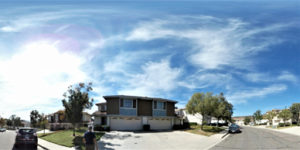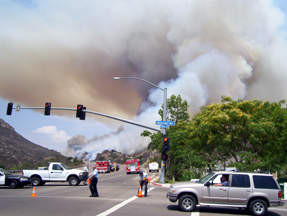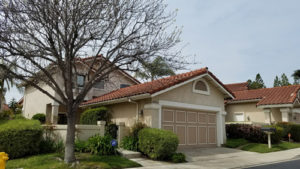
If you are thinking about picking up a real estate bargain by buying a bank-owned foreclosure property, or a short sale, it behooves you to pay attention. You should always seek professional representation by a real estate agent but even so, you could end up over-paying by hundreds, or even thousands, of dollars in unnecessary costs.
The insidious implementation of a new rip-off tactic makes it extremely difficult to discern until after the sale has closed. Even when closed, your own real estate agent may not want to bring this to your attention, because they too will suddenly realize the lack of due diligence on their part, has cost you, the buyer, unnecessary costs and fees.
Currently, these buyer rip-offs are occurring on bank owned foreclosures and short sale properties. Typically, in these transactions, services such as escrow, title, and natural hazard disclosure are selected by the seller or seller’s agent. The vast majority of buyer’s agents do not counter the services because they don’t want to jeopardize acceptance of their offer. In normal situations the fees for these services are very similar from one company to another.
In California, title companies are tightly regulated, as are the escrow companies that they control. But, independent escrow companies do not have their fees regulated. This non-regulation of fees is a key to this rip-off.  The term rip-off is used here quite liberally, but if the fees are properly disclosed and the buyer is aware that they are extremely high, and it is their decision whether to move forward with the transaction, in that case, there’s nothing wrong.   A buyer likely won’t be happy over-paying escrow fees but if they believe they are getting a steal on the value of the property, then they may proceed just to insure their purchase.
It is not so much the exorbitant fees being charged by independent escrow companies that constitute a rip-off but the charging of the exorbitant fees without timely, proper disclosure that is a problem. Presently, this has been seen mostly in the Orange County and Los Angeles areas.
Exactly what are these exorbitant fees charged to buyers? The main fee is the escrow fee that the buyer is required to pay. I was told by one major lender that the buyer’s escrow fee on a $265,000 bank owned foreclosure was $1400. Typically, the buyer’s portion of the escrow fee on such a sale would be approximately $680. Some other high fees are: E-doc fee of $150, which would normally cost about $75; a notary fee of $250 to notarize the loan documents in the escrow office; in one case a mobile notary was required for a fee of $350 and lastly, a loan tie-in fee of $300, when typically it runs about $100.
Typically on a bank owned property and or short sales the lenders require certain boilerplate, documentation to accompany any offers or they provide this documentation as part of a counteroffer. It’s in this documentation the lender states which companies they require for the various services necessary to close the transaction. To my knowledge, the amount of fees these lender selected companies are going to charge is not a required disclosure.
The buyer’s real estate agent should not put too much credence in the fact that the offer they drew up states that the escrow fees are to be split 50-50. In the boilerplate, lender required documentation, it may state that the escrow is to go through XYZ escrow company. Another document will state that the XYZ escrow company is an affiliated or bank owned subsidiary.  In this case, though technically the bank and the buyer are both paying an exorbitant escrow fee, the bank is actually paying their half of the fee to themselves. Although I have no documentation, it could also be that the required vendor boilerplate documentation states that the lender’s maximum contribution for the escrow fees will be a specific number and anything above that will be picked up by the buyer.
Even though I do not have exact information as to how these exorbitant fees are being disclosed or if they are being disclosed, I am 100% certain that these exorbitant fees are being charged on many bank owned foreclosures and short sales. The charges far exceed the norm, thus in my opinion, meet the criteria of a “rip-off.â€
One major San Diego lender informed me that so far this year they originated new loans on about 30 bank owned or short sale properties. In every transaction, the escrow fees charged were way above the norm.
The simple way to cure this situation is for California to control the independent escrow fees. Barring this, or in the meantime, it is prudent for buyers’ agents involved in these types of sales to request upfront disclosure about all buyer costs.
If you are contemplating the purchase of a California bank owned foreclosure or short sale, caveat emptor.






In many ostensibly socialist countries, the benefits eventually wound up going mainly to the “right people”. There are winners and losers in any system. It’s not the system, it’s the people. They never change, and there will always be alphas around to boss and rip off the rest of us who have the nasty habit of minding our own business and being honest.
San Diego cosmetic surgery
I am surrounded by folks who think this is the time to buy. Just like I was 3 or 4 years ago. Based on home price fundamentals – I don’t see any possibility of a bottom for YEARS. Here, inventory is growing as foreclosures outpace sales.
San Diego breast lift
I had a bank-owned sale last year that had excess junk fees charged to my buyer. I demanded that they reverse them, and sent copies of my email to the bank’s listing agent, the buyer, the lender and the owner of the escrow company. They double checked and refunded about $375 of it.
I recommend always requesting an estimated HUD-1 a couple days prior to close!